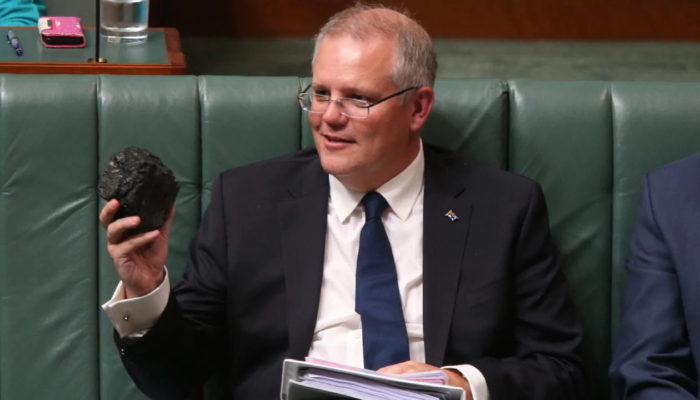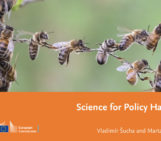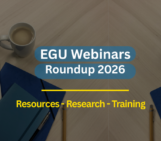
Most of the EGU’s GeoPolicy blog posts focus on overarching topics that I believe will be useful for the majority of scientists who read them. I see myself as a facilitator who connects scientists and policymakers, providing impartial information to promote more effective knowledge exchange and subsequently evidence-informed policies. This month’s GeoPolicy post however, takes a different angle by providing a policy critique followed by some recommendations for scientists about what they do when policymakers intentionally or accidentally misinterpret or misuse their science.
Australia’s climate policies are… based on science?
While I live and work in Europe and focus on integrating science into the European policymaking process, I cannot help but lament the many times I read about the misuse of scientific evidence by policymakers in my home country of Australia. With the G7 summit coming to an end this week, Australia’s emissions targets and lack of climate policies are at the foremost of my mind. Australia’s climate commitments are some of the weakest in the world with a target to reduce emissions by 26-28% below 2005 levels by 2030. These climate policies are starkly different from those of the EU that has committed to cutting carbon emissions by at least 55% by 2030, compared with 1990 levels and become climate neutral by 2050. Furthermore, the climate solutions that Australia has implemented have been heavily criticised by scientists for their lack of transparency, failing to target the biggest polluters and their short-sightedness. The Australian government has shown no sign of scaling-up climate action and has denied recent climate events (such as 2020’s severe bush fires) are linked to climate change despite the scientific evidence saying otherwise.
So, what can you do if you are trying to influence policy when you are concerned that the policymaker you need to work with doesn’t value science in the same way you do?
The dangers of misusing science
Regardless of whether it’s intentionally mis-representing the facts, a lack of scientific consultation or cherry picking data (i.e. selecting data that appear to confirm one position while ignoring other data that contradicts it), misusing science to fit a policy narrative is incredibly dangerous and can result in numerous issues, including:
- Ineffective policies. Integrating science into the policymaking process enables decision-makers to more accurately assess the benefits and potential consequences of different policy pathways. If a policymaker does not want to use science, or cherry picks the parts they want to hear, the policies selected may have negative unintended consequences.
- Decreased public trust in science and in science for policy processes. Cherry picking the data used or misusing statistics may result in some people seeing the scientific process as flawed. You can read more about why the public might mistrust science here.
- The distortion of truth can also threaten democratic values. Democracies rely on well-informed and politically educated citizens who call on their political representatives to resolve issues and who monitor their progress. If the information exchanged about these issues isn’t accurate. or received by policymakers, voters may lose confidence in the system which may reduce civic participation.
How can scientists prevent their expertise from being misused?
If science is being intentionally misused or cherry-picked on a national level or by a high-level government official, there’s little that an individual scientist can do about it. However, there are a number of things that you can do to help prevent your science being misinterpreted on a smaller scale and there are many actions you can take to support scientific integrity more broadly.
- Ensure that you’ve communicated your science well. Being clear, understandable and accurate when communicating your research to a non-scientific audience is the first step to ensuring it isn’t’ misinterpreted. You can read some tips about how to communicate effectively with non-experts here.
- Be willing to work along-side non-scientists. Stronger bridges between scientists, industry leaders and policymakers can help prevent your research from being unintentionally misinterpreted. Not only will working alongside non-scientists give you a better understanding about what those in other communities do and do not understand, but it will give them more time to ask questions and follow-up with anything that they aren’t sure about. Working together to co-create the initial question(s) that need to be answered and the final solution can also result in greater overall satisfaction with any science-policy processes and build trust for future collaboration.
- Call it out and be prepared to report incorrect science in policy. Scientific evidence can be complicated and is often accidentally misinterpreted by journalists, policymakers, and the public. Honest mistakes happen and if your research has been misunderstood it’s important that you let the relevant people know as soon as possible. See more about the different ways in which research can be misinterpreted here. However, if your request is ignored or your science continues to be misused, you should be prepared to report the incident to an external source such as your institution who can then take further action.
- Publicly support your government’s science advisory mechanisms (if they exist) or advocate for them if they don’t. Science advisory mechanisms come in many different forms and often include both internal and external components. They may be run within a particular government agency or special unit, or through permanent or ad hoc expert panels. Understanding your government’s science advisory mechanisms will not only enable you to more effectively engage with it, but also allow you to understand where the information that is being used to create policies is coming from. If a high-level government official or entire department is misleading the public with scientific evidence, your options are more limited. However, supporting strong science advisory mechanisms may help reduce the prevalence of this misconduct.





Elen Evans (STEM Ginger Education)
It’s such a concern, isn’t it? I am teacher (natural sciences and English) and I am not a scientist communicating research and findings, but my contact with joe-blogs really highlights concerns in the information gap that is ever-present (as a result of messages from policy-makers, politicians, the media, even well-intentioned environmentalists).
The other day, I was teaching a group of adult ladies in Spain about recycling, biological degradation of organic material etc. An ‘average’ lady, educated and brought up in a western European country, thought she was doing the right thing by burning her plastic waste. We hear repeatedly ‘no plastic waste, it must not get in the ocean …’ (very true) and then the media reports about the atrocities of ‘recycled’ waste actually being dumped in the environment in other countries (very true) so this lady thought she was opting for the better option. I explained why burning the plastic was not a good idea and it needs to be recycled, but, obviously I was very aware of the almost apparent ludicrousness of the alternative I was presenting her with but I didn’t know what to say. I gave her the basic science as to why burning it is not a good idea. She really thought she was doing the right thing 🙁
Messages from scientists, to policy-makers, to politicians, to the media, to joe-blogs need to be clear, complete, effective, implementable and, like you say, when untruths are being passed around, the scientists need to get back involved, correct and explain. Undeniably, they then need to have a loud voice!